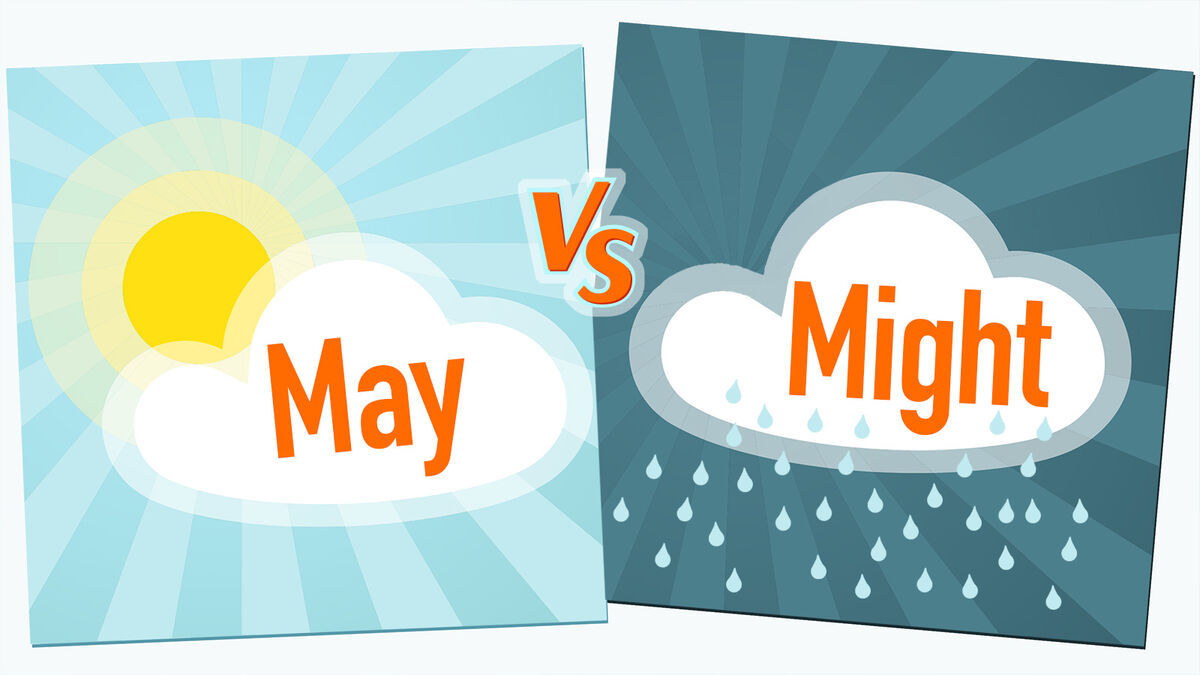
When to use “might” vs. “may” can get confusing. To try to clarify things, it’s important to break down the differences between “might” and “may” in tense, probability and even permission. Because explanations can be boring, examples are going to work to really drive the “might” and “may” difference home.
“Might” vs. “May”: Look at the Verb Tense
“Might” and “may” discuss the possibility of something happening in a situation. However, how they are used in a sentence can vary. One clear way to know which one to use is by looking at the tense of the sentence. “Might” is the past tense of “may.” When deciding which one to use, you can use the sentence tense to decide on “might” or “may.”
Refer to these examples to see how “might” is used:
- He might have called me after the game, but they got busy.
- I might have gotten into Harvard, if I had studied harder.
- We might have walked to the park, but it was raining.
- The boy might not have gotten caught stealing but there were cameras.
- She might not have fallen, but they forgot to salt the sidewalk.
Since all these sentences are in past perfect tense, “might” was the choice to make. Notice how they all had the word “have” as well, as in “might have”? That’s a good indication of the past perfect tense.
Now, you can see how “may” is used with present tense:
- He may call after the game.
- I may get into Harvard.
- We may walk to the park.
- The boy may get caught stealing.
- She may fall on the sidewalk.
The clear winner is easy when it comes to tense. Now, you can look at gauging probability with “may” and “might.” This choice isn’t as clear, but there is a simple way to remember which to choose.
Defining Probability With “Might” and “May”
Do you know how probable it is that you are going to go to that football game? What is the probability of you scoring an “A” on your test? Determining whether something is very likely or remotely likely is the difference between choosing “may” or “might” for your sentence.
Here is the breakdown:
- Use “may” when something is more likely to happen.
- Use “might” if something is less likely to happen or in a hypothetical situation.
Sound confusing? Examples can work to really clear this up for you.
Use of “May” in a Sentence
When you use “may,” it means something is probably going to happen. So, you will probably go somewhere or probably get something. It has a high likelihood of happening, like:
- We may go to the park after dinner.
- You may get a car after graduation.
- I may go on vacation up north.
- The family may go camping.
- Tyler may get a raise at work.
In these examples, the probability of something happening is pretty high. There is still a little question or doubt about whether or not it will happen, but it is very possible.
Using “Might” in a Probability Sentence
When you use “might,” it is less likely to happen. So, to keep it simple, you will probably not go somewhere or probably not get something. It has a very low likelihood of happening, like:
- You might make it on time, but you’ll have to hurry.
- I might win the lottery.
- I might buy myself a new Jaguar.
- Tyler might get that $5 raise he’s asking for.
- We might go on a vacation to Australia.
Here, you can see the probability of something happening is really low. It could happen, but it’s not likely.
Getting Permission Using “Might” and “May”
When it comes to asking for permission, “may” and “might” are a couple of your go-to words. They’re right up there with “can.” These words can be used interchangeably to ask for permission, especially in less formal situations. However, you’ll notice that “may” sounds more polite.
- May I use the restroom?
- May I go to my room?
- May I have more dessert?
- Might we see your map?
- Might she ask you something?
- Might I read that when you are done?
Using “Might” for Clarity in Permissions
There is one area that gets a little muddy when it comes to “may” or “might” for permissions. That is when you use a negative hypothetical situation.
For example, “She may not go to the party.” In this sentence, it sounds like she doesn’t have permission to go to the party. If you are trying to clarify probability, you will always use “might” instead: “She might not go to the party.” Compare the two sentences to see the difference.
- He may not go canoeing. (permission)
He might not go canoeing. (probability) - The boy may not go to the lake. (permission)
The boy might not go to the lake. (probability) - Terry may not go to softball. (permission)
Terry might not go to softball. (probability) - I may not go to the store. (permission)
I might not go to the store. (probability)
Properly Using “May” and “Might”
When it comes to the English language, using the right word can avoid confusion and provide clarity. “May” and “might” may seem simple enough, but the two have some very subtle differences. Now that you’ve now been introduced to “might” and “may,” it might be a good idea to check out other auxiliary verbs. You may even find it exciting!